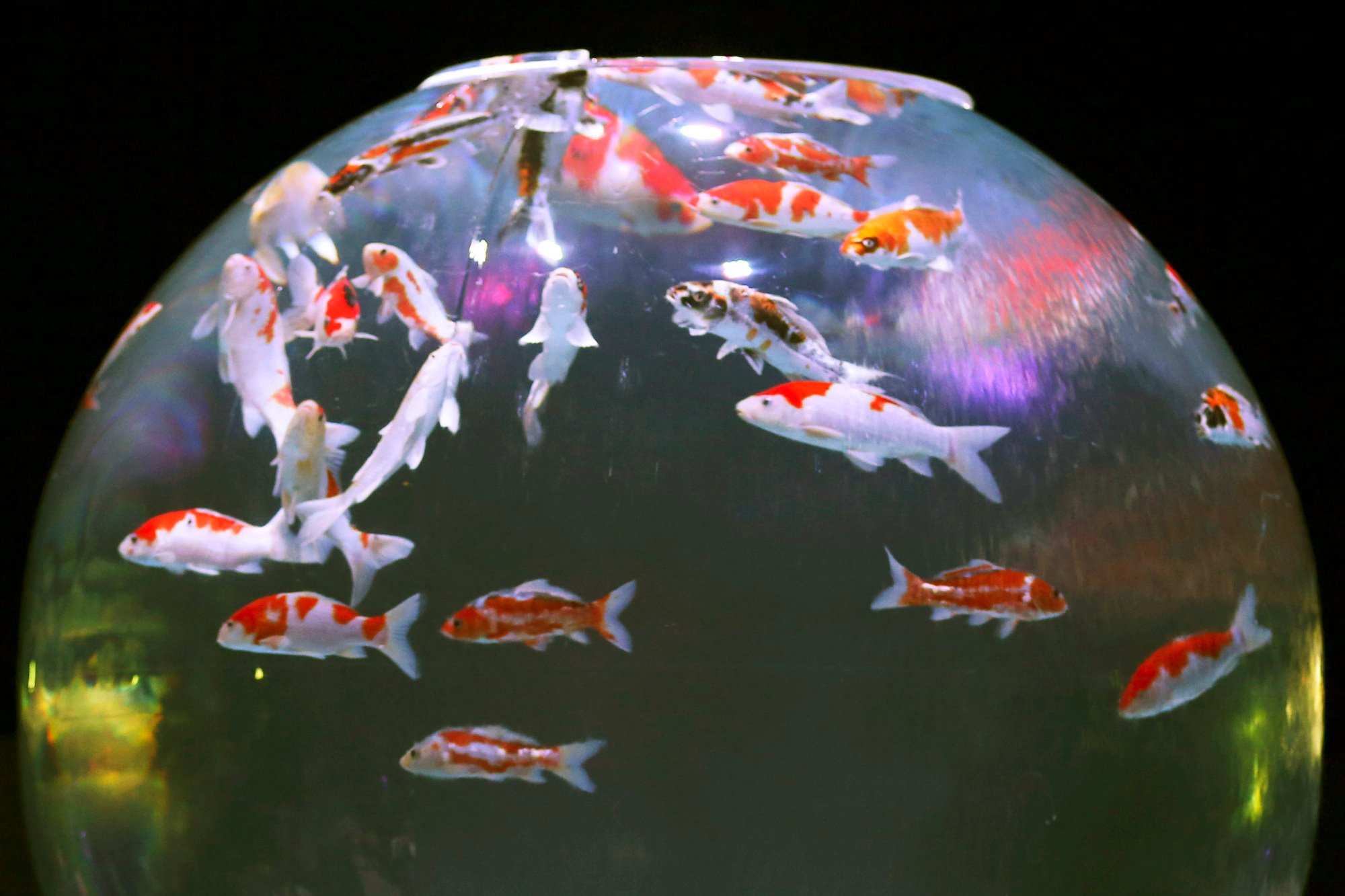
China’s Fukushima-linked ban appears to widen to reel in Japan’s prized ornamental carp as traders bemoan ‘serious damage’
- Chinese authorities have failed to renew the relevant paperwork for the export of Japan’s nishikigoi carp, Japanese fish traders say
- Fukushima is ‘an excuse’ and Chinese collectors want to breed their own stock of the ornamental carp, according to a Japanese trader
Chinese authorities have failed to renew permits for exports and quarantine of the ornamental koi at the end of October despite Japanese exporters submitting the required paperwork well in advance, the All Japan Nishikigoi Promotion Association said.
“We have not been informed about why the paperwork has not been approved this time,” said Tsutomu Senuma, a spokesman for the association.
“This is a very difficult situation for many of our members as China is an important export market for them,” he said. “We are asking China to approve the permits and have requested more information through the Japanese government.”
The association’s members feel the problems are not insurmountable and are hoping that sales of the nishikigoi carp to the Chinese market can resume soon, Senuma said.

The same day, Chinese Foreign Ministry spokesman Wang Wenbin reiterated Beijing’s strong opposition to the release of treated water from the Fukushima nuclear plant into the Pacific, describing the discharged water as “nuclear-contaminated”.
This was despite Japan’s insistence that the water had been treated to remove virtually all radionuclides before it was released and that any remaining contaminants were well below internationally accepted limits.
China had made no official statement on halting imports of Japanese koi, Matsuno said.
Beijing has implemented an almost blanket ban on imports of fish and other maritime products from Japan after the first round in August, with Japanese exports in September plummeting nearly 91 per cent from one year earlier to a mere 800 million yen (US$5.3 million). But nishikigoi carp, pearls and products made from coral were unaffected by the ban in September.
Japanese carp have long been sought-after by collectors around the world, with some specimens with particularly attractive markings selling for millions of yen each. According to government statistics, Japanese companies exported 6.3 billion yen (US$41.5 million) worth of ornamental fish in 2022, double the figure of 10 years previously, with China being the biggest market, accounting for around 19 per cent of all exports.
“Japanese breeders and dealers have high-quality fish to sell to China, but I guessed it was going to become more difficult after the Fukushima water began to be released,” he said. “I think it is only the Chinese government that is complaining about the water, but it is causing serious damage to others in the koi industry here.”
Fukushima is just one excuse, but they want to do it by themselves now – and that is the bigger problem for the Japanese koi industry
“Yes, I’m worried,” he admitted. “The Hong Kong market has already been getting smaller for some years now and it is becoming more and more difficult there.
“The Chinese are talking about the water from Fukushima, but there are other things going on there as well,” he said. “Chinese collectors no longer want to pay large amounts to Japanese breeders for fish as they want to breed their own stock.
“Fukushima is just one excuse, but they want to do it by themselves now – and that is the bigger problem for the Japanese koi industry.”

